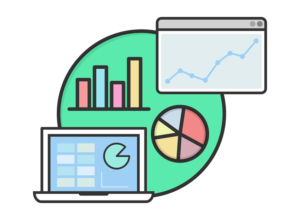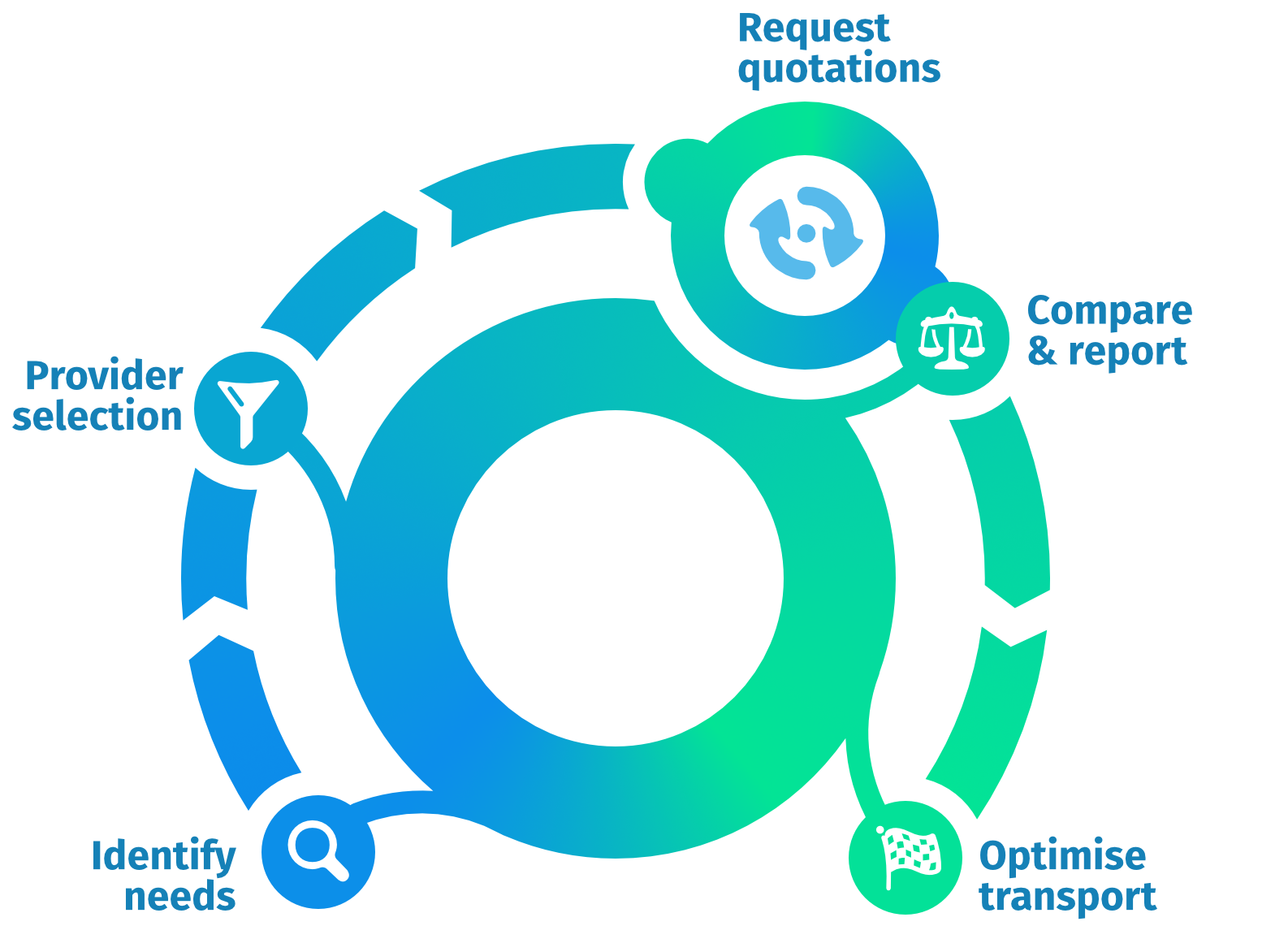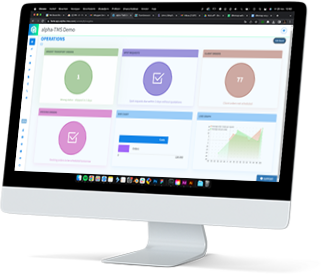Transinnovate offers solutions for a logistics control tower, both the necessary software system and the service. Because it is a buzzword, we explain on this page why a control tower is useful, what is needed, and how Transinnovate can help shippers with this. If you want to discuss with us what a control tower can bring you, please feel free to contact us.
Why a Control Tower?
If your company trades or produces physical goods, transport is essential for your business operations. It directly affects your commercial margin and has a direct impact on your customer satisfaction. After all, if there are late deliveries, delays, or transport damage, your customer calls you, not your carrier.
Companies often focus on their primary process when looking for improvements, and transport is an overlooked aspect. “It’s running, and we have other projects now” is a common answer. A lack of overview and current data is often the cause of this lack of action. If there is no data to steer on, then steering becomes very difficult.
Experience shows that a control tower can result in a 10 to 15% cost savings on transport. You can also address quality problems with transport in a more structured and proactive way, instead of relying on gut feelings. Current data from your transport operation can also signal problems elsewhere in your process. An increase in the number of urgent shipments, for example, may be a sign of production problems. Companies can benefit greatly from a control tower.

What is a Control Tower and What is Needed?
The term control tower is derived from air traffic control in a ‘control tower’ that efficiently (and safely) handles air traffic with a central overview. It revolves around 1) having information and data, 2) the ability to steer directly, and 3) tight processes and clear responsibilities.
Information: It is clear that in the management of aircraft, having up-to-date and correct information is essential to life. Although there is usually no literal life or death situation in transportation, having up-to-date, complete, and correct data is a must if you want to manage carriers effectively. However, many shippers accept that information is not up-to-date (monthly reports and carrier invoices are issued afterwards) and not integrated. It is often spread across their own ERP system (customer orders) and transport orders in email or the portal of one or more carriers. A good control tower ensures that there is up-to-date and complete data on customer orders, transport orders, costs, and quality in one central location. A Transport Management System (TMS) can help shippers with this. A TMS provides much better data than a (often rigid and limited) transportation module in an ERP system, which often only focuses on sending out a transport order. This can be detailed data or monthly reports that combine information from multiple carriers in one clear dashboard or report.
Management: Once the data is available, you can start managing. However, you need to have the tools to do so. You need buttons to turn and knobs to adjust. How do you record what is going well and what is not? What can you do differently if things are not going according to plan? It starts with smart transportation procurement (transport tendering), where our advice is to choose the right mix of carriers (more than one) to ensure a cost-effective but also robust operation. Good organization beforehand makes good management much easier.
Again, a good TMS ensures that the tools for management are available in the same place as the data. For each shipment, there is immediate insight into cost and delivery time options, insight into which orders require urgent action, and the ability to record quality problems immediately.
Clear processes and responsibilities: With a TMS, information is available, and there is the ability to manage. This often reveals the most challenging aspect, namely the knowledge and discipline to actually take control. Good tools are half the job, but the other half is discipline and craftsmanship. Air traffic controllers do not receive thorough training for nothing and work according to strict processes and clear responsibilities. This is often underestimated in transport management. Both internal and external stakeholders need to know what their tasks and responsibilities are and how they should work. Someone needs to take charge of this. Analysis of key performance indicators should lead to the right actions and the management of the internal operation and logistics service providers.
Outsource or do it yourself?
Especially because of the last aspect, a control tower is sometimes outsourced. This has advantages and disadvantages. The advantage is, of course, that shippers do not have to invest in a TMS themselves, and that the hired specialist makes capacity available. A disadvantage is the independence of the external specialist and the transparency. 3PL and 4PL parties often have agreements with carriers that do not necessarily use the best carriers in the market. It can also be that own trucks are used for the wrong reasons. Depending on the business model, service providers do not necessarily make the best choices for their customers (conflict of interest), and there is often no complete transparency. The margin that a 3PL/4PL asks for also leads to cost increases compared to doing it yourself and must be weighed against the investment in a TMS and time.
Doing it yourself means investing in people and resources, but it is always the most transparent, leads to the most direct control of the transportation operation, and gives the most flexibility to switch carriers if it is better due to quality, cost, or market developments.
How does Transinnovate help shippers?
We can support shippers in all steps of the process regarding a control tower. This starts with good organization and smart procurement, so that there is something to choose and steer. In addition, we provide modular and accessible TMS solutions that make transport management software now also accessible to small businesses and SMEs. This gives you up-to-date and complete information that is easily accessible, and the ability to intervene directly. We can help you define processes and responsibilities clearly, and train your personnel to manage them effectively. Finally, we can also provide complete outsourcing services by offering to manage your Control Tower. Our knowledge, experience and independent position (no agreements with carriers and no own transport equipment) ensure that we can transparently and effectively help you achieve your goals. This way, we help you maintain a healthy margin and satisfied customers (optimal freight costs with good quality).
If you would like to learn more about how we can help you reduce your transport costs, please feel free to contact us.





